After decades of relative obscurity, the last few years have seen essential oils earning a place in the mainstream. Often, we think of using essential oils for aromatherapy, cleaning or for cosmetic fragrances, but these potent potions can also carry an impressive range of healing and restoring benefits. The clear liquid that you see in small jars or bottles is extracted from flowers, roots, herbs and so on, through a process called distillation, and the result is a highly concentrated solution of the plant’s properties — aroma, certainly, but also compounds that may provide relief from physical ailments, stress, exhaustion and other quality-of-life issues.
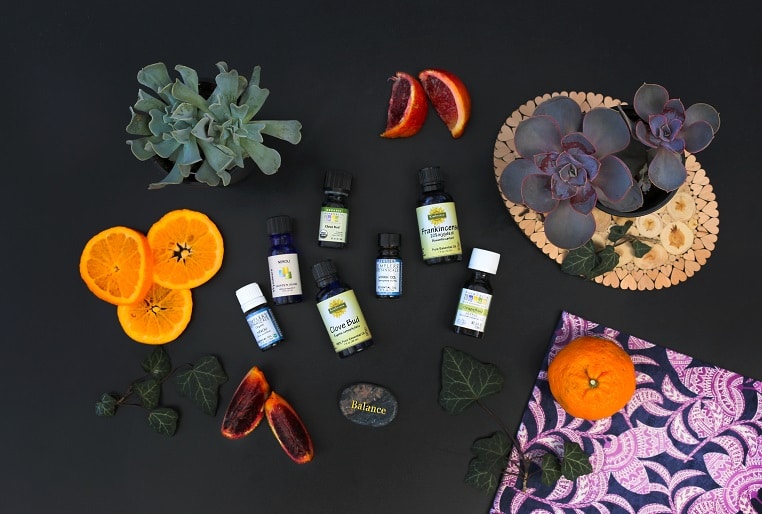
Some essential oils may be more recognizable to you. The well-stocked and expertly-staffed Apothecary department at Kimberton Whole Foods reports its top sellers as lavender, tea tree, orange, lemon, eucalyptus and peppermint. But, there are dozens and dozens more essential oils beyond these common varieties, each with special holistic super powers. We asked the staff at KWF to share some recommendations for lesser-known or “underrated” essential oils that should have a place in your medicine cabinet or pantry. Here are their picks:
Clove
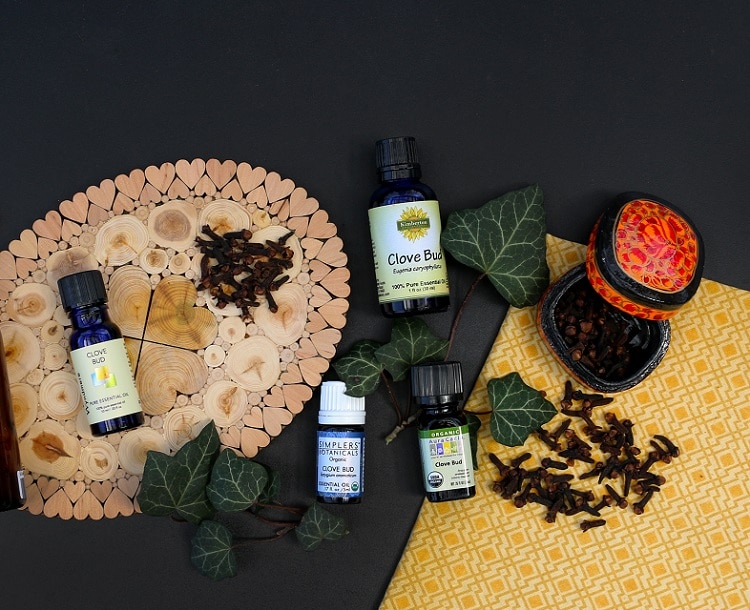
Tiny clove buds come from the evergreen clove tree that’s native to Indonesia. While you may know clove best as a spice for winter baking or mulling wine, it’s been regarded for centuries for its medicinal properties. Clove has antimicrobial, antifungal and antiseptic properties, and essential oil devotees often turn to it for skin issues, digestion issues, respiratory problems, like coughs and asthma, and for headaches and stress.
But, what cloves are perhaps best known for are their help with dental care. Clove oil contains a high amount of eugenol, a natural chemical compound that’s frequently used by dentists for its antiseptic and anti-inflammatory properties. It can be helpful for treating dental issues, sore gums and mouth ulcers at home.
Two uses: Apply a drop of clove oil to a toothache using a Q-tip; dilute with water in a spray bottle to use as a disinfectant room spray.
Frankincense
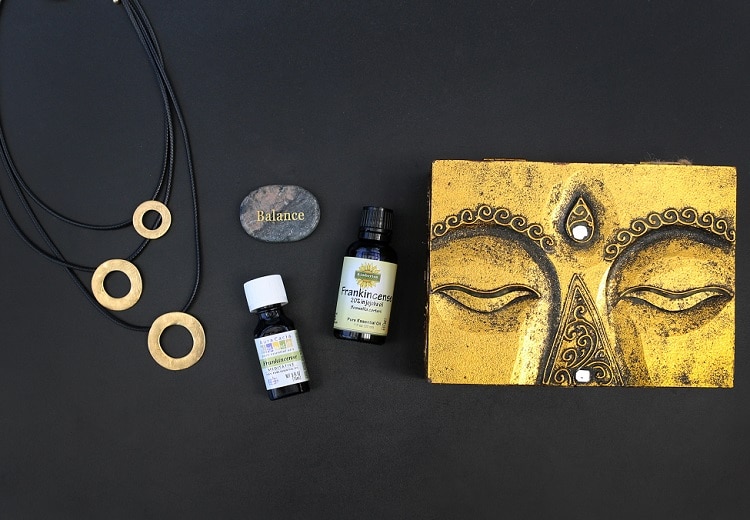
This highly aromatic resin comes from trees of the genus Boswellia. Frankincense has been prized for millennia for its calming properties and alluring scent. Those familiar with the Christmas story from the Bible will remember it being one of the gifts brought to the baby Jesus by the three kings. While it was prized for its perfuming qualities in the times before modern plumbing, it is still a valuable essential oil when it comes to pain management.
Christy from the Kimberton location Apothecary says, “I have heard a few customers use it on aching knees and also menstrual cramps. The company Simplers Botanicals claims it can be used to promote deep breathing and balance mood swings.”
Two uses: Add a few drops of diluted oil to a bug bite to reduce the itching; place a diffuser in your bedroom to promote a restful night’s sleep.
Grapefruit
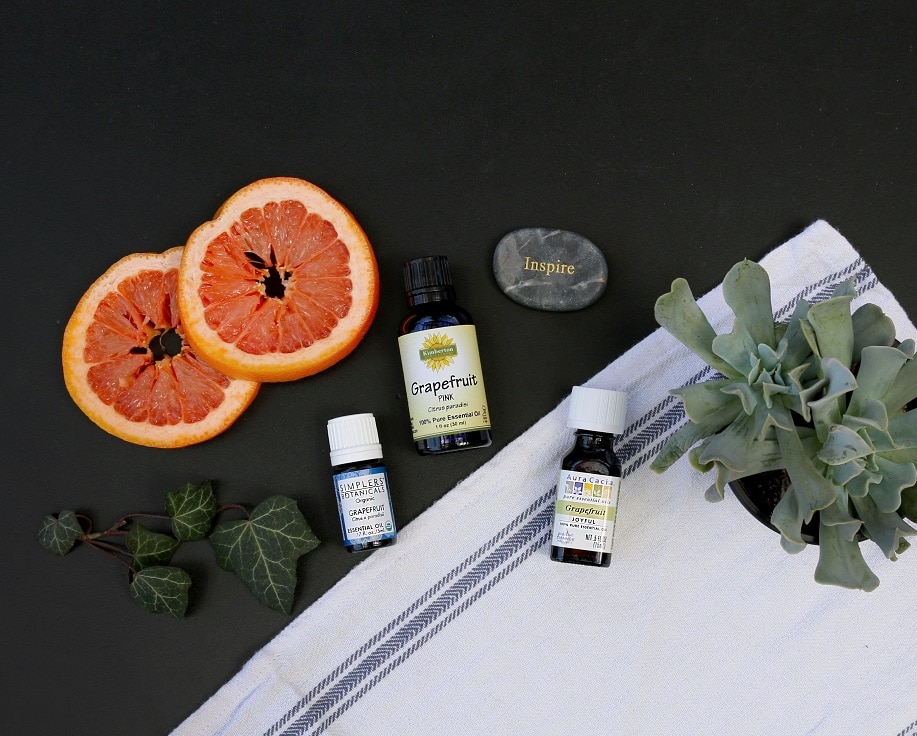
Just as citrus juice lends a zesty brightness that perks up food, essential oils from citrus fruits are energizing and uplifting. Grapefruit essential oil is derived from the peel of the fruit and has the same vibrant aroma and pleasant bitterness. Its wellness claims include fighting inflammation, easing hangovers and reducing stress. Also a natural disinfectant, this oil can be used for all-natural cleaning.
Two uses: Blend a few drops with lavender and use topically or diffuse to help energize and boost your mood; take a whiff of the bottle to help control sugar cravings.
Myrrh
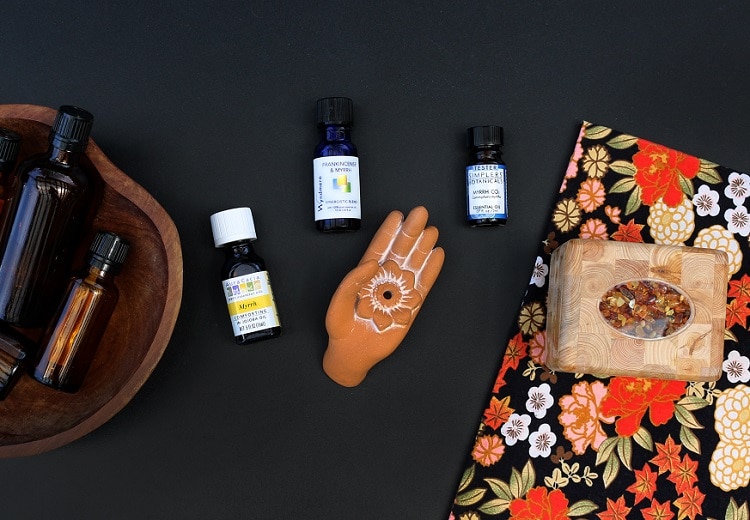
Myrrh’s list of properties is quite long, including antifungal, antimicrobial, astringent, expectorant, circulatory, among many others. This oil comes from a resin from small trees of the genus Commiphora, native to parts of the Middle East and Africa. Often used in ancient Greece to treat wounds, myrrh’s ability to fight infection makes it a great addition to topical ointment for cuts and scrapes. It is also often used to ward off coughs and colds, as a digestive aid and as a nervous system stimulant.
Two uses: Mix myrrh with a carrier oil, such as sweet almond oil, and apply to moisturize dry skin and to help reduce the appearance of scars and spots; add a few drops to a chest rub to help coughs become more productive.
Neroli
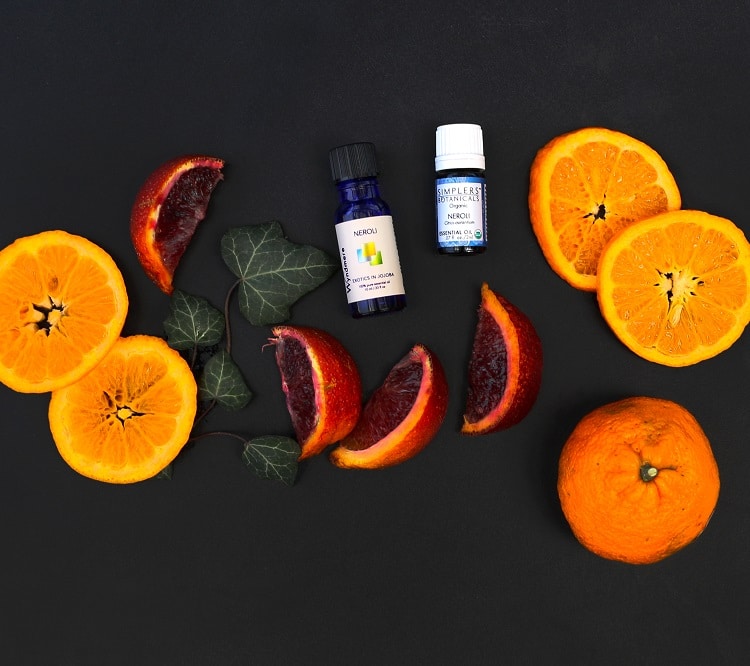
The small white flowers of the bitter orange tree yield a sweetly scented oil called Neroli. Not only is this a frequent addition to perfumes and scented candles, it can also be helpful to treat issues like depression, anxiety, premenstrual cramps and fitful sleep. Some studies have also shown it as effective in reducing blood pressure and cortisol levels.
Two uses: Add a few drops to a bath to help relieve stress and anxiety; place a few drops on a cotton ball and place it under your pillow to help promote restful sleep.
While you’re shopping for essential oils at Kimberton Whole Foods, you can rest assured that you’ll find only the purest, non-GMO oils with high-quality, cruelty-free ingredients. And for an exceptional value, look for essential oils from KWF’s own brand, Vitality Works, made with sustainably sourced botanicals, and priced to fit your budget. Feel free to ask the Apothecary staff for advice if there are specific issues or conditions you’d like help with — they are always ready to answer questions, offer samples and help guide you on your personal wellness journey.
Essential oils can be purchased at any of the six Kimberton Whole Foods locations: Collegeville, (484) 971-6055; Kimberton, (610) 935-1444; Downingtown, (610) 873-8225; Malvern, (484) 324-2800; Douglassville, (610) 385-1588; and Ottsville, (610) 847-2419.
Kimberton Whole Foods staff are not medical practitioners and do not diagnose, treat or prescribe in any form. Always discuss with your medical practitioner before using any alternative medicines or remedies.
- Photos: Kimberton Whole Foods




